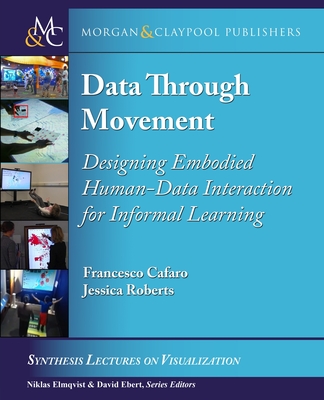Social Perspectives on Ancient Lives from Paleoethnobotanical Data
暫譯: 古代生活的社會觀點:來自古植物考古數據的研究
Sayre, Matthew P., Bruno, Maria C.
相關主題
商品描述
This volume contributes to the emerging topic of social paleoethnobotany with a series of papers exploring dynamic aspects of past social life, particularly the day-to-day practices and politics of procuring, preparing, and consuming plants. The contributors to this volume illustrate how one can bridge differences between the natural and social sciences through the more socially-focused interpretations of botanical datasets. The chapters in this volume draw on a diversity of plant-derived datasets, macrobotanical, microbotanical, and molecular, which contribute to general paleoethnobotanical practice today. They also carefully consider the contexts in which the plant remains were recovered. These studies illustrate that the richest interpretations come from projects that are able to consider the widest range of data types, particularly as they aim to move beyond simple descriptions of food items and environmental settings.
The authors in this volume address several themes including: the collection of wild resources, the domestication of crops and spread of agriculture, the role of plant remains in questions regarding domestic life, ritual, and gender as well as the broader implications of a socially-engaged paleoethnobotany. These studies point a path forward for the constantly evolving field of paleoethnobotany, one that is methodologically rigorous and theoretically engaged. Together, these papers shed light on ways in which the specialized analysis of plant remains can contribute to theory building and advancing archaeological understanding of past lifeways.
商品描述(中文翻譯)
本卷貢獻於新興的社會古植物考古學主題,透過一系列論文探討過去社會生活的動態面向,特別是獲取、準備和消費植物的日常實踐與政治。本卷的貢獻者展示了如何透過更具社會焦點的植物數據集解釋,來彌合自然科學與社會科學之間的差異。本卷中的章節利用多樣的植物衍生數據集,包括宏觀植物學、微觀植物學和分子數據,這些都對當今的古植物考古學實踐有所貢獻。它們還仔細考慮了植物遺骸被回收的背景。這些研究表明,最豐富的解釋來自於能夠考慮最廣泛數據類型的項目,特別是當它們旨在超越對食物項目和環境設置的簡單描述時。
本卷的作者探討了幾個主題,包括:野生資源的收集、作物的馴化與農業的擴展、植物遺骸在家庭生活、儀式和性別問題中的角色,以及社會參與的古植物考古學的更廣泛意涵。這些研究為不斷演變的古植物考古學領域指明了前進的方向,這是一個方法論嚴謹且理論參與的領域。這些論文共同闡明了植物遺骸的專門分析如何有助於理論建構和推進對過去生活方式的考古理解。
作者簡介
Dr. Maria C. Bruno is currently an Assistant Professor at Dickinson College where she teaches courses in Archaeology and World Prehistory, Environmental Archaeology, and Archaeological Method and Theory. She is also actively engaged in Dickinson College's interdisciplinary Center for Sustainability Education. Her research focuses on the environmental, technological, social, and political dynamics of ancient agricultural systems in South America, particularly in the Lake Titicaca Basin of the Andes and in the Llanos de Moxos region of the Amazon Basin.
作者簡介(中文翻譯)
馬修·P·賽爾博士目前是南達科他州大學的助理教授。他教授考古學、生物人類學和歷史生態學的課程。他也積極參與新可持續性專業的開發和教學。他的研究專注於南美安第斯地區人們的過去生態、儀式和生產實踐。在過去十年中,他在秘魯的聯合國教科文組織世界遺產地查文·德·胡安塔爾工作,並領導一個專注於該地點拉班達區域的家庭定居點的田野項目。
瑪麗亞·C·布魯諾博士目前是迪金森學院的助理教授,教授考古學和世界史前時代、環境考古學以及考古學方法與理論的課程。她也積極參與迪金森學院的跨學科可持續性教育中心。她的研究專注於南美古代農業系統的環境、技術、社會和政治動態,特別是在安第斯的的的喀喀湖流域和亞馬遜流域的莫霍斯平原地區。











